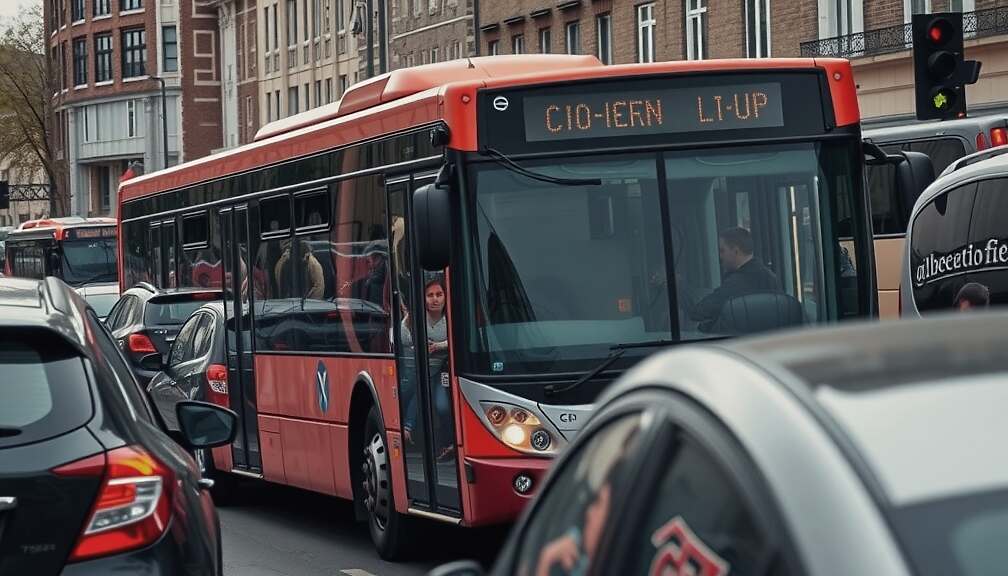A recent survey indicates a limited implementation of dedicated bus lanes in major German cities, potentially hindering efforts to promote public transportation and reduce congestion. The German Environmental Aid (DUH) conducted the assessment, with findings reported by the Redaktionsnetzwerk Deutschland newspapers.
The data reveals that only five out of 40 cities surveyed have established dedicated bus lanes on more than one percent of their road network, despite the simplified procedures for implementation outlined in the updated German Road Traffic Regulations.
Berlin currently leads the way with 121 kilometers of dedicated bus lane, representing 2.3 percent of its total road network. Aachen and Mainz follow with 1.4 percent each, closely trailed by Munich and Hamburg. The majority of other cities fall significantly below the one percent threshold. Notably, Halle (Saale), Krefeld, Magdeburg and Oberhausen currently have no dedicated bus lanes at all.
Jürgen Resch, Federal Managing Director of the DUH, expressed concern that buses continue to face congestion alongside general traffic despite being a crucial component of sustainable mobility. He cites resulting issues such as delays, increased emissions and heightened CO2 output. Resch advocates for the rapid implementation of “pop-up” bus lanes, which he believes offer an immediate, cost-effective solution.












